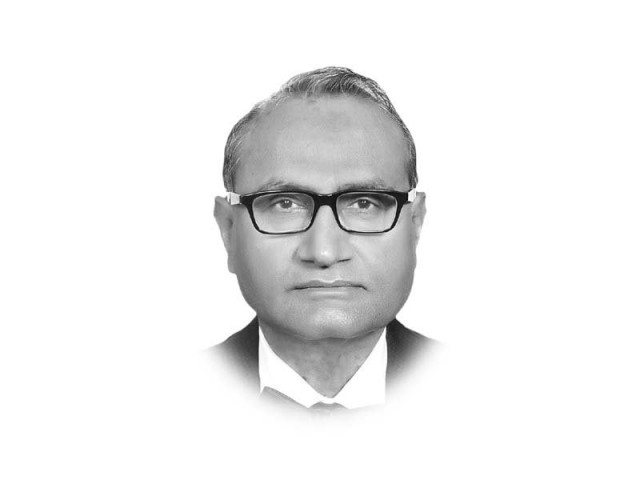Economic Survey and the budget
What makes the government think that the private investment will pick up the slack?

pervez.tahir@tribune.com.pk
What makes the government think that the private investment will pick up the slack? Among other things, private investment is a function of government policies conducive to business. The monetary policy has kept interest rates low. Reduced mark-up rates are available for long-term finance facility and export refinance facility. Credit to the private sector has seen respectable growth. Supply of electricity and gas has improved. The export package and rupee devaluation have boosted the export industries. Imports have risen sharply, but a major chunk relates to machinery and raw materials. The foreign direct investment is also looking up. There is a pronounced increase in the registration of new companies.
Fiscal measures announced in the budget are designed to further incentivise private investment. A phased reduction in corporate income tax rate, gradual reduction in the super tax rate, significant reduction in the individual income tax on Association of Persons (AoPs), reduction in tax rate on undistributed profits, extension of tax credits for establishing new industrial undertakings, purchase of machinery through equity and extension, expansion and balancing, modernisation, replacement (BMR) of machinery for another three years, exemption of deep conversion refineries from income tax for a period of 10 years, reduced tax on import of coal, withdrawal of withholding tax on issuance of bonus shares will all have a positive impact. In addition, the limit of tax credit for investment in new shares has been enhanced. The indirect tax incentives include exemption of dairy, livestock and agriculture from sales tax and concessions in customs duties. Many computer parts have been exempted from sales tax to encourage local production. Value-added exports also get some duty concessions. Duties on inputs imported by some import substituting and manufacturing units have been reduced. Duty concessions have also been given to prefabricated hotel rooms, Completely Knocked Down (CKD) kits for local assembly of electric cars and local manufacturing of LED. Exemption of sales tax on import is being granted to plant and machinery on one-time basis for setting up of Special Economic Zones and for installations by zone enterprises. Improvements have been proposed in the audit procedures, refund payment, tariff structure, zero-rating regime, revamping of the alternative dispute resolution.
Given a peaceful conduct of elections and an orderly transfer of power thereafter, the new government can further strengthen these measures to boost investment. This is necessary not only to avoid going to the IMF, but also and more importantly to take care of the education, health and employment of the 64 per cent under the age of 30 estimated by the National Human Development Report launched on May 2nd.
Published in The Express Tribune, May 4th, 2018.
Like Opinion & Editorial on Facebook, follow @ETOpEd on Twitter to receive all updates on all our daily pieces.















COMMENTS
Comments are moderated and generally will be posted if they are on-topic and not abusive.
For more information, please see our Comments FAQ